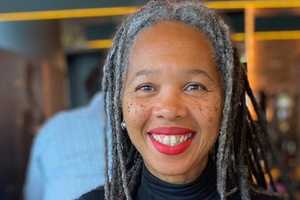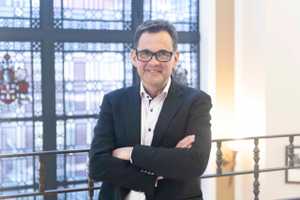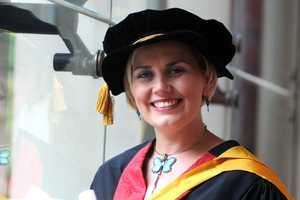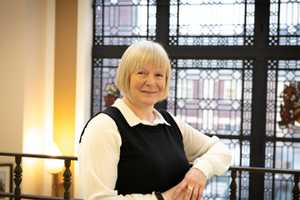As the director responsible for all technical negotiations related to the United Nations
Framework Convention on Climate Change in the Dominican Republic, Nathalie Flores is guiding her country towards a brighter future.
Nathalie lists studying at the University of Wolverhampton as a formative moment in her path to her successful career. Since childhood she had always “liked everything ‘UK’”, which helped her decide to take an MSc in Environmental Management at the University, with a focus on climate change.
She says: “I think my time at the University was probably one of the best years of my life. Not only for the student experience, but because of the exchanges I had with other Dominicans who I never dreamed of meeting before."
“It was an amazing opportunity to get to know the Black Country and the West Midlands too, and to feel like I was seeing how things work in real life."
After she had graduated, Nathalie returned to the Dominican Republic to work for the Ministry of Environment and Natural Resources, and she was soon leading in the areas of renewable energies and climate change negotiations. Her career grew rapidly and, after four years working for the Secretariat of the Coalition for Rainforest Nations in New York City, today, Nathalie is the Ministry’s director for climate change adaptation and mitigation.
She continues: “I’m in charge of all technical negotiations related to the United Nations Framework Convention on Climate Change, so we basically try to mitigate the adverse effects of climate change."
“We represent the Dominican Republic at an international level, making the policies, taking into account the government priorities and, of course, aiming to urgently adapt and reduce our carbon emissions.”
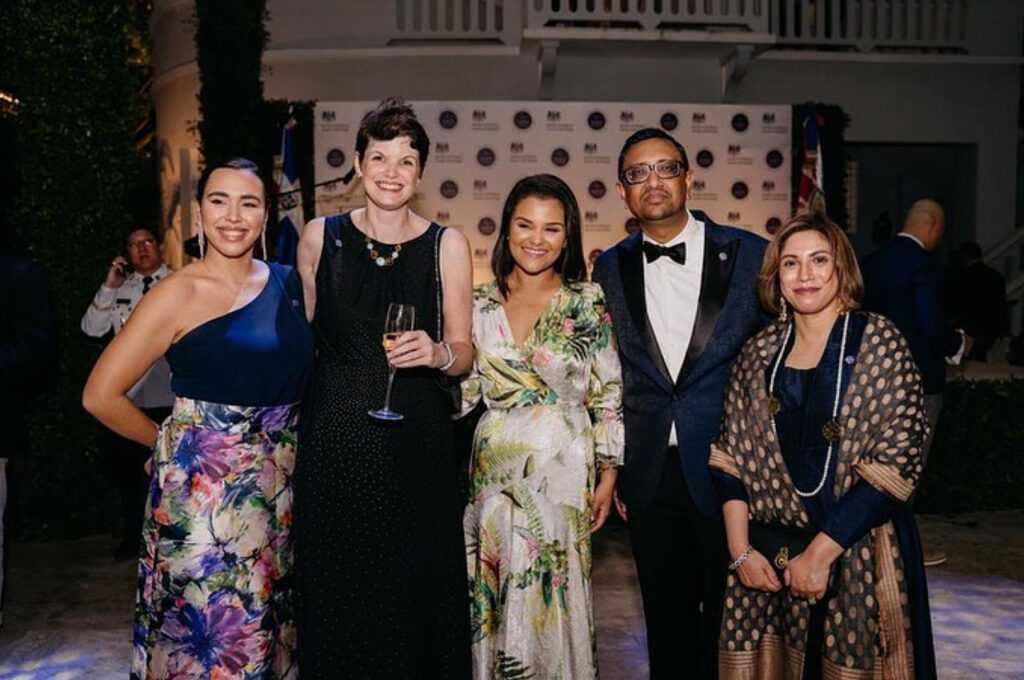
Nathalie says she and her department have “lots of hats”, as their work usually involves regulation, policymaking, policy decisions and projects implementation. Even now, she says that she often considers the training she received at the University of Wolverhampton during her everyday role.
She says: “I will never forget when my professor, Brian Shipley, explained to us the three pillars of sustainability: planet, people, profit. This is important, because one of the biggest challenges we have is to try and encourage people to make sustainability a culture."
“The main cause of climate change is the way our economic model works, and you can’t change an economic model to develop in a sustainable way without making the people you’re speaking to understand something huge: you can’t have a profit without protecting the planet.”
In the Dominican Republic, agriculture and tourism are the country’s main industries, which in terms of energy consumption, are also responsible for large amounts of the carbon emissions, but DR only contributes to 0.07% to the global system. Nathalie suggests that the country’s stakeholders need to agree on changing their economic model limiting the amount of carbon its industries are responsible for.

“We try to help the government administration make better use of all the resources we have to overcome the climate crisis. We need a more scientific approach.
“Short term, we need more education about what the climate emergency is and how people can actually change their behaviour to improve the situation."
"We need a better balance between the climate change goals, the budgets, and acting in accordance with them both.”
Nathalie says that the main problem isn’t that people don’t believe in climate change, but that they don’t recognise that it is a global emergency, and how severely it affects not just the future but the current state of the economy. This isn’t just the Dominican Republic’s responsibility to oppose, of course: it’s the whole world’s.
“We experience evidence for climate change every year, and these extreme weather events – hurricanes or droughts or whatever – affect our economy, too. The legislator needs to understand that by limiting carbon emissions they can reduce the number of these extreme weather events."
“I’ve been director for climate change adaptation and mitigation for two-and-a-half years, and I’ve been pushing very hard in order to achieve some sort of policy to change our business-as-usual to take us closer to ‘net zero’ – cutting carbon emissions to as close to zero as possible. But even if we limit our carbon emissions, it won’t be enough unless big countries that are more developed than ours don’t take part too."
Nathalie wants to be optimistic about the future, but she says that after many years of working in the area of climate change, we are still a long way from achieving the kind of progress we need globally.
“People need change,” she says. “The world needs to change. But sometimes it feels like we are going backwards – and that’s why we need to keep fighting to educate so that we can make sustainability a culture. That’s going to be key in order to regain optimism in what we need to achieve as a whole.”

